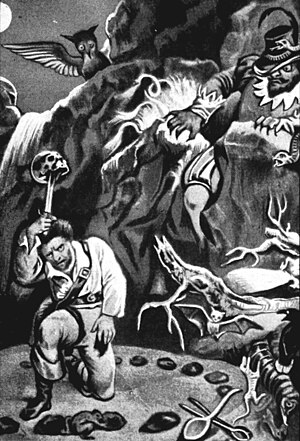| Display title | Der Freischütz |
| Default sort key | Der Freischütz |
| Page length (in bytes) | 7,546 |
| Namespace ID | 0 |
| Page ID | 165307 |
| Page content language | en - English |
| Page content model | wikitext |
| Indexing by robots | Allowed |
| Number of redirects to this page | 1 |
| Counted as a content page | Yes |
| Number of subpages of this page | 2 (0 redirects; 2 non-redirects) |
| Page image |  |
| Edit | Allow all users (infinite) |
| Move | Allow all users (infinite) |
| Delete | Allow all users (infinite) |
| Page creator | m>Import Bot |
| Date of page creation | 21:27, 1 November 2013 |
| Latest editor | Robkelk (talk | contribs) |
| Date of latest edit | 22:01, 12 May 2021 |
| Total number of edits | 9 |
| Recent number of edits (within past 180 days) | 0 |
| Recent number of distinct authors | 0 |
| Transcluded templates (4) | Templates used on this page:
|
Description | Content |
Article description: (description)
This attribute controls the content of the description and og:description elements. | Der Freischütz — literally, "The Free-shooter," i.e., a marksman who uses magic bullets — is an 1821 Singspiel (an opera with spoken sections rather than recitative) by German composer Carl Maria von Weber, to a libretto by Friedrich Kind, based on a tale from August Apel and Friedrich Laun's Gespensterbuch (The Book of Specters). The opera is one of the most important works of the German Early Romantic movement (it is often considered the musical equivalent of the paintings of German master Caspar David Friedrich), and soon gained widespread popularity throughout the Germanys, as well as abroad, with productions in England and America within five years of its premiere. The score is notable for its early use of Leitmotif, including the famous "Samiel diminished seventh" and of Agathe's aria, „Leise, leise, fromme Weise" to characterize the forces of Evil and Good, respectively. It was almost certainly a source of inspiration to the young Richard Wagner, who adored Weber [1]. |
